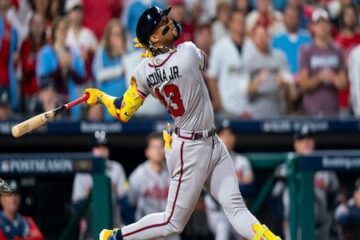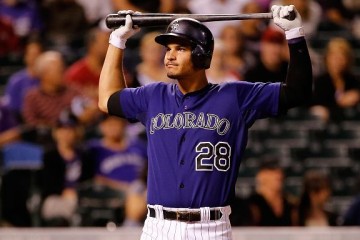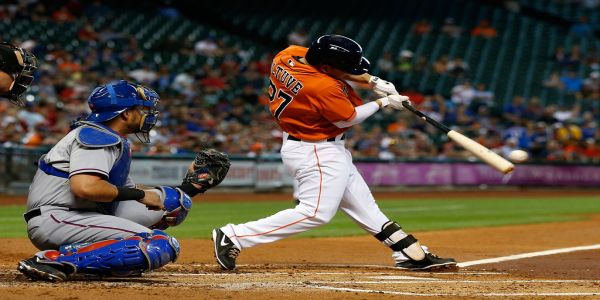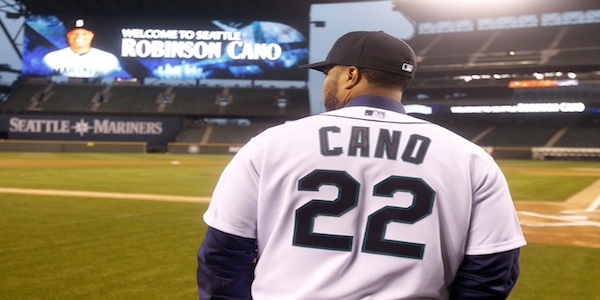2018 Fantasy Baseball: PECOTA Projection Rankings– Second Basemen
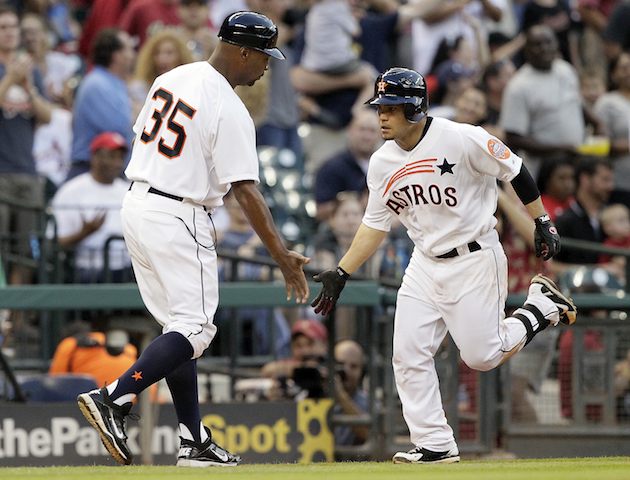
Baseball Prospectus’s PECOTA projections always come at a time of year where it is a good idea to reboot the rankings. The first round of rankings are based largely on past performance in the various formats. Past performance can be valuable, but sometimes it is inappropriate for the future. So, we use these PECOTA projections to reboot each position. We are including the six main categories (including walks as the sixth) and true average to keep us honest. True average is a BP statistic that attempts to calculate everything a player does offensively and then distill out the effects of home ballpark so we can have a neutral rating of the player.
We have also included multiple position players even if they will not play second as their primary position. Doing so allows us to have a more accurate look at how things will look on draft day. Of course, we may occasionally disagree with PECOTA. It worked the same way with the past performance.
- Jose Altuve—Houston Astros
PECOTA: .315, 15 HR, 89 Runs, 79 RBI, 32 SB, 43 BB
TAV: .288
Let’s begin by looking at the recent past. Altuve has three consecutive seasons with 20 or more home runs and in each of those seasons PECOTA projected him to hit around 15. I suppose if they keep throwing that number up it will be correct at some point. I understand why they do that. They have to. You have to base your numbers on something scientific and when you look at the batted ball data you have to predict regression. I just don’t buy it.
- Brian Dozier—Minnesota Twins
PECOTA: .249, 28 HR, 104 Runs, 86 RBI, 16 SB, 69 BB
TAV: .266
Part of the beauty of a number like TAV is that it gives you a sense of the gap between a guy and the guy immediately above or below him. There is a sizeable gap between Altuve and the rest of the field. However, you must temper that with the actual numbers. With the exception of batting average, Dozier is just about as good.
- Robinson Cano—Seattle Mariners
PECOTA: .286, 21 HR, 79 Runs, 87 RBI, 2 SB, 50 BB
TAV: .279
The opinions on Cano will vary wildly depending on whether you think they are a better offense than they were a year ago. He is experiencing slippage, but if they improve overall it could be hidden for another year. Sometimes you can get caught up in how good a guy has been and ignore what he will be. Cano should be exist at the intersection of loving memory and actual production for at least one more season.
- Jose Ramirez—Cleveland Indians
PECOTA: .281, 14 HR, 76 Runs, 72 RBI, 20 SB, 46 BB
TAV: .263
Ramirez shifted between second base and third base last season. He is likely to play more at third this season, but he will be eligible at both. He’s produced two seasons in a row, so the numbers you’ve seen aren’t a fluke. He really is this good.
- Yoan Moncada—Chicago White Sox
PECOTA: .233, 20 HR, 88 Runs, 64 RBI, 21 SB, 68 BB
TAV: .259
This ranking is based almost purely on spec, but he was the number one prospect in baseball coming into last season. If you are playing in an OBP league then Moncada is a good value here. Few players at the position will give you 20/20 value.
- Daniel Murphy—Washington Nationals
PECOTA: .302, 16 HR, 67 Runs, 73 RBI, 4 SB, 34 BB
TAV: .272
It’s hard to imagine a three-year contract working better than it did for the Nationals in this instance. Murphy has been brilliant and there is little reason to believe it won’t continue. There has always been rumors of him playing first base some and if he does that will only enhance his value. PECOTA projects less playing time, but he has outperformed them two years in a row, so here is betting on a third season.
- Ozzie Albies—Atlanta Braves
PECOTA: .268, 14 HR, 88 Runs, 65 RBI, 22 SB, 44 BB
TAV: .259
A great deal of the tension of fantasy baseball is the intersection of value that comes between past performance, future projections, counting numbers, and absolute value. Albies will put up nice numbers because he has good power and speed. He won’t be as valuable as some others because of a lack of patience, but in five category leagues that won’t hurt you as much.
- Rougned Odor—Texas Rangers
PECOTA: .256, 23 HR, 76 Runs, 75 RBI, 12 SB, 28 BB
TAV: .254
Odor is a hard player to project because his ranking depends so much on the format you are playing in. In standard formats he is a borderline top five second baseman because of the power and speed combination. In other formats he may drop out of the top ten. There’s simply way too much swing and miss in his game to trust him too much.
- Ian Happ—Chicago Cubs
PECOTA: .245, 21 HR, 62 Runs, 66 RBI, 7 SB, 42 BB
TAV: .264
In Happ and Zobrist, the Cubs have two players that can play multiple positions. He is penciled in as the Cubs center fielder at the moment. There are a ton of moving parts here and that makes Happ somewhat exciting as a fantasy prospect and somewhat scary at the same time. If he gets the at bats he will be a top ten player at second and will factor in the outfield as well.
- Jason Kipnis—Cleveland Indians
PECOTA: .260, 14 HR, 85 Runs, 64 RBI, 14 SB, 59 BB
TAV: .257
I might start referring to Kipnis as “Star Trek”. In the movie series, the even numbered films were perceived to be the best. It’s an even numbered season, so we should see good production from Kipnis. He played some outfield, so he will be eligible there as well. In terms of fantasy value he plays much better at second base.
- Ian Kinsler—Los Angeles Angels
PECOTA: .253, 16 HR, 83 Runs, 64 RBI, 13 SB, 40 BB
TAV: .250
PECOTA is projecting a dip in production, but common sense would seem to point the other way. He is joining a lineup with Mike Trout, Justin Upton, and Albert Pujols. Granted, Pujols is not as good as he was even just three years ago, but all of them are run producers that should complement Kinsler’s game.
- Jonathan Schoop—Baltimore Orioles
PECOTA: .263, 26 HR, 73 Runs, 87 RBI, 1 SB, 25 BB
TAV: .257
If it isn’t obvious by now it should be. I just don’t like guys that don’t draw walks. Add that to Schoop’s lack of speed and I just don’t see the overall value in a guy that just hits home runs. Granted, if he hit 40 home runs it would be a different story. He deserves a starting slot, but there are other guys on the board that are better.
Top Bench Depth
- Javier Baez—Chicago Cubs
PECOTA: .255, 22 HR, 71 Runs, 74 RBI, 13 SB, 30 BB
TAV: .253
The Cubs are a thinking organization. In a game of musical chairs they will find the most productive guys to play. Baez has tantalizing skills, but those skills haven’t manifested themselves in consistent value yet. He gets the first crack at second base, but something tells me either Happ or Zobrist end up here more often.
- Whit Merrifield—Kansas City Royals
PECOTA: .262, 12 HR, 84 Runs, 57 RBI, 27 SB, 35 BB
TAV: .246
There is a gap between TAV and the numbers. Stolen bases have little value in real baseball as compared to power and on base production. In fantasy value they become crucial because of their relative scarcity. Merrifield will undoubtedly suffer because of the loss of Eric Hosmer, Mike Moustakas, and Lorenzo Cain.
- Cesar Hernandez—Philadelphia Phillies
PECOTA: .275, 8 HR, 77 Runs, 51 RBI, 16 SB, 57 BB
TAV: .259
The Phillies get a full season of Rhys Hoskins, Carlos Santana, J.P. Crawford, and Jorge Alfaro. This doesn’t even mention a full season of Nick Williams. In other words, it is a much better offense without even mentioning Maikel Franco and a potential bounce back season. So, we have to bet on some of that rubbing off on Hernandez and his runs and RBI.
- Dee Gordon—Seattle Mariners
PECOTA: .281, 4 HR, 89 Runs, 44 RBI, 54 SB, 33 BB
TAV: .245
If it weren’t for stolen bases, Gordon would be completely off the board. I’m not sure he is stealing 50+ bases in the American League. Jose Altuve led the league a year ago and he barely eclipsed 30. Managers don’t like outs on the bases. Even with those steals, you end up surrendering home runs and RBI in the process.
- D.J. LeMahieu—Colorado Rockies
PECOTA: .286, 7 HR, 75 Runs, 53 RBI, 10 SB, 49 BB
TAV: .248
We have to put LeMahieu through our Coors Field decoder ring. TAV is a lovely stat that helps us judge players when they get dealt or sign elsewhere, but for him it means you can miss the value. If you add maybe ten points then you can compare him favorably with others around him. He seems to hit consistently for average, so he has more value than the other counting numbers would indicate.
- Brad Miller—Tampa Bay Rays
PECOTA: .241, 19 HR, 74 Runs, 61 RBI, 9 SB, 62 BB
TAV: .261
PECOTA is projecting a bounce back campaign for Miller and I suppose that makes sense. It’s hard to ignore either the 2017 numbers or 2016 numbers. If you average them together you get something like is. I seriously doubt the sharp minds at BP simply pulled out the calculator and came up with the numbers that way, but sometimes the simple explanations make the most sense.


